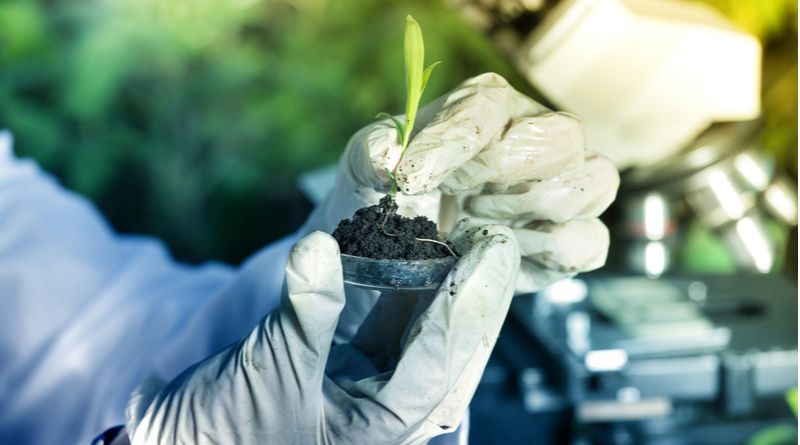What is Agricultural Science?
Agriculture is the art and science of growing crops and rearing animals for human use – such as cotton for clothing, wood for shelter and fuel, plants and roots for medicines, materials for biofuels, and also as an industry that provides incomes and livelihoods to many.
Agricultural science is the science of dealing with food and food production and processing. This includes the technologies of soil cultivation, crop cultivation and harvesting, animal production, and the processing, storage, and marketing of crops, animals, and their products.
What 3rd level courses are available?
Universities and colleges in Ireland are offering Agricultural Science courses in the following subject areas:
- Agriculture – The study of Farm Management, environmental protection, food safety, animal welfare, operation of machinery, and business management.
- Pre-University Agricultural Science – An introduction to Agriculture science and a variety of areas related to the study of animal science.
- Leaving Cert Agricultural Science – The study of Agricultural Science, Biology and Geography for the Leaving Certificate.
- Environmental Management and Agriculture – The study of soil, ecology, plant and animal physiology, farm crops, farming practices, genetics, and microbiology associated with agriculture.
- Bachelor of Science in Agriculture and Environmental Management – Gain a range of specialized skills ideal for employment in the agricultural and environmental sectors.
Studying Agricultural Science in college
Many Agricultural Science courses take place over 1 year to 4 years depending on the course and modules selected. There are also part-time courses and night courses available so you can be sure to fit in your studies no matter what your schedule is like.
Courses will cover all theory work through lectures, assignments, tutorials, and taught modules. Assessments will take place continuously with written examinations and practical assignments combined to achieve a qualification.
Hands-on work experience will increase your chances of securing a job after graduation. If you don’t have the opportunity to complete a placement year as part of your course, look for relevant work in the holidays. This may involve going to local commercial farms and asking if they have any extra work or seeing if you could shadow someone who works in farm management or searching for local voluntary projects in your area involving agricultural or environmental work.
Work Experience will not only allow you to obtain a deeper knowledge and understanding of the industry, but it will also give you a chance to do some essential networking with other industry professionals and gain valuable contacts for the future.
Studying business management as part of a relevant degree course can be advantageous, particularly if you want to enter the business side of the Agricultural Science field.
Career options
After completing a course in Agricultural Science you will be able to get started in a career that uses specific knowledge of agricultural engineering, animal or biological science, crop and plant science, environmental science, horticulture, or soil science.
Working hours can be demanding and varied, depending on the season and clients’ needs. Regular hours of 9 am-5 pm are uncommon and unsocial hours are typically worked especially in busy periods.
Working time is usually split between the office and the outdoors, although this can vary depending on the role. For example, crop consultancy involves spending the majority of your time out of the office, while a research role means more time spent in a laboratory.
Related jobs include:
- Agricultural consultant
- Estates manager
- Farm manager
- Fish farm manager
- Plant breeder/geneticist
- Rural practice surveyor
- Soil scientist
- Amenity horticulturist
- Commercial horticulturist
- Field trials officer
- Forest/woodland manager
- Horticultural consultant
Further study
After completing a course in Agricultural Science you may choose to pursue further study in a specialist field to increase your knowledge base and skillset. Postgraduate study can also be used as a means to change career focus or to gain professional qualifications required to practice in certain career areas such as farm management, the service, and supply industries, sales, research, or advisory and consultancy work.
FAQ
Are there any specific skills that would be beneficial for a career in Agricultural Science?
As with most industries, some broader skills will make you more appealing to potential employers – such as the ability to communicate well and work well with a team, and lead when necessary. Having the initiative to make decisions and the ability to plan and conduct research will be important.
To study agriculture you will need a mix of technical skills and knowledge so an interest in subjects such as farming practice, food production, crop and livestock science, farm machinery, sustainability, and environmental management will be necessary.
You will gain an understanding of the scientific, technical, ethical, and business principles that underpin the agricultural industry and will also inevitably deal with the ethical principles of the agricultural industry so you should be prepared for that.
Where can I study Agricultural Science?
Explore your options here
Did You Know?
· Farming began around 10,000 B.C. during the First Agricultural Revolution when nomadic tribes began to farm. This is when the eight so-called “founder crops” of agriculture appeared: emmer wheat, einkorn wheat, hulled barley, peas, lentils, bitter vetch, chickpeas, and flax.
· 40% of today’s global population works in agriculture, making it the single largest employer in the world.
· Organic farming typically requires 2.5 times more labor than conventional farming, but it yields 10 times the profit.
· Healthy soil is an important component of sustainability. Methods to enhance and protect the productivity of the soil include using cover crops, compost/manure, avoiding traffic on wet soils, and maintaining soil cover with plants/mulches.
· The Industrial Revolution led to faster and more efficient farming technology, which helped usher in the Second Agricultural Revolution from 1700 to 1900 in developed countries. Many less developed countries are still experiencing the Second Agricultural Revolution.












Comments